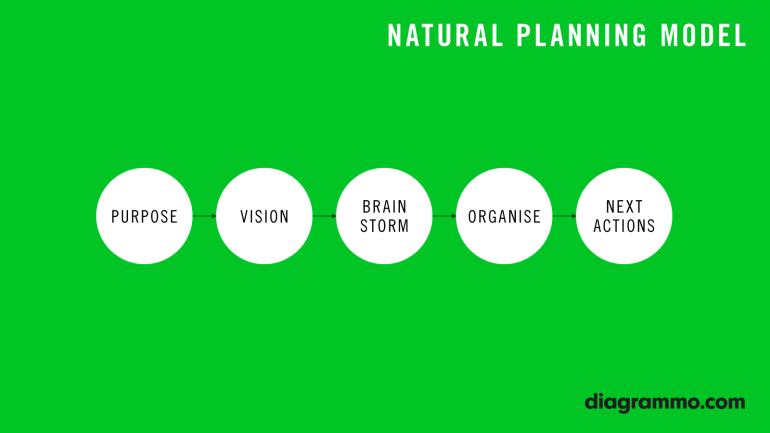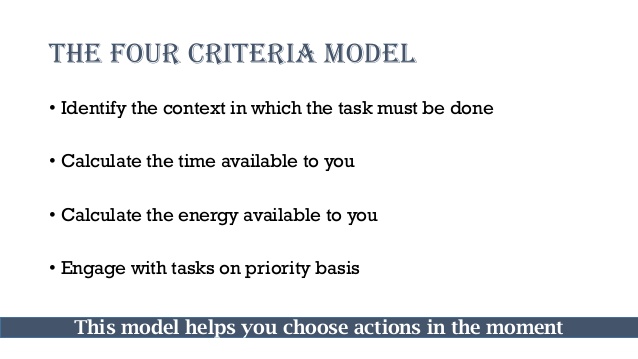Transition Project
(→blablabla1) |
|||
| Line 24: | Line 24: | ||
[[File:Getting-things-done-36-638.jpg]] [4] | [[File:Getting-things-done-36-638.jpg]] [4] | ||
| − | + | [[The Golden Cirkel. -why? -How? -what?]] | |
| + | '''The Golden Cirkel. -why? -How? -what?''' Is a three step model that analyzes the | ||
==blablabla2== | ==blablabla2== | ||
Revision as of 11:03, 28 February 2020
Contents |
Natural Planning Model
The Natural Planning Model is a 5-step procedure detailed by David Allen that aims to describe how our brain plans naturally. Allen defines a project as any outcome requiring more than one action step.[2]
Here are the Natural Planning Model steps
1. Define Purpose and Principles
2. Envision the Outcome
3. Brainstorm
4. Organize
5. Identify the Next Actions
The Four-Criteria Model
The Four-Criteria Model - At any given time of the day, you can use 4 criteria to decide what you should do from among the many things that you could possible work on. The four criteria are context, time available, energy available and priority, in that order. We think that we must work on the task with the highest priority but you are often constrained by the first three criteria. [3]
The Golden Cirkel. -why? -How? -what? The Golden Cirkel. -why? -How? -what? Is a three step model that analyzes the
blablabla2
blablabla3
blablabla4
blablabla5
blablabla6
blablabla7
References: [1] - https://remembereverything.org/natural-project-planning/, [2] - http://diagrammo.com/natural-planning-model/, [3] - https://medium.com/@hsabnis/getting-things-done-action-choices-43f2467d615c [4] - https://www.slideshare.net/mbaskills01/getting-things-done-51619677

